
The Scholarship recipients 2022 Information is from the applications
Feyaad Allie, Stanford University, Political Science
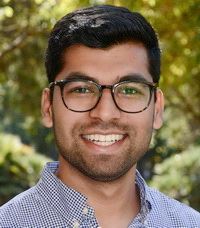 "Despite having the third largest Muslim population in the world and a constitution founded on secularism, India--the world's largest democracy--continues to have striking religious inequalities," Feyaad notes in the introduction to his application. His dissertation, which focuses on Indian Muslims, offers a "comprehensive story of the origins of the political exclusion of marginalized groups, when they can break out of this exclusion, and why, even when they break out, they are unable to sustain power," instead falling into a "'representation trap' where changes in group identification both within the Muslim minority and the Hindu majority hurts future Muslim political prospects." The success of a Muslim candidate "may amplify sub-identities within [the Muslim community], . . . with Muslims identifying more with their sub-identities" rather than their overarching Muslim identity. Thus, increased representation does not necessarily reduce inequalities.
"Despite having the third largest Muslim population in the world and a constitution founded on secularism, India--the world's largest democracy--continues to have striking religious inequalities," Feyaad notes in the introduction to his application. His dissertation, which focuses on Indian Muslims, offers a "comprehensive story of the origins of the political exclusion of marginalized groups, when they can break out of this exclusion, and why, even when they break out, they are unable to sustain power," instead falling into a "'representation trap' where changes in group identification both within the Muslim minority and the Hindu majority hurts future Muslim political prospects." The success of a Muslim candidate "may amplify sub-identities within [the Muslim community], . . . with Muslims identifying more with their sub-identities" rather than their overarching Muslim identity. Thus, increased representation does not necessarily reduce inequalities.
His professors have called his work "policy relevant research that can benefit marginalized groups" and expect it to be "a foundational piece of scholarship in political science." Personally, he is "a diligent researcher, exceptionally bright, and very hard working."
Feyaad is currently doing research in India - when he comes back in (probably) July, he will have a video to post.
Daniel Friedman, UC Berkeley, History
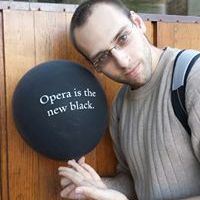 In "'We Couldn't Go a Day without Statutes': Political Legitimacy in Early Imperial and Medieval China," Daniel challenges the claim that China has never had a concept of a "rule of law," but has only in modern times adopted such a concept. "Who cares about these ancient legal texts? The Chinese government, for one, as well as its supporters who want us to believe that Chinese social superiority derives from a millennia-old legal tradition that places the ruler beyond the constraints of the law. Western critics . . . want to identify the roots of Chinese authoritarianism as far back as possible, casting doubt on the existence of any native legal tradition . . . [This] work shows that Chinese legal history is neither as brilliantly unique nor as foreign as either its champions or its detractors claim."
In "'We Couldn't Go a Day without Statutes': Political Legitimacy in Early Imperial and Medieval China," Daniel challenges the claim that China has never had a concept of a "rule of law," but has only in modern times adopted such a concept. "Who cares about these ancient legal texts? The Chinese government, for one, as well as its supporters who want us to believe that Chinese social superiority derives from a millennia-old legal tradition that places the ruler beyond the constraints of the law. Western critics . . . want to identify the roots of Chinese authoritarianism as far back as possible, casting doubt on the existence of any native legal tradition . . . [This] work shows that Chinese legal history is neither as brilliantly unique nor as foreign as either its champions or its detractors claim."
His professors note that he is "asking all the right questions" and has not only "an analytical mind" but the ability to "feel" through the problems to reach conclusions.
Linda Kinstler, UC Berkeley, Rhetoric (Hardardt Award)
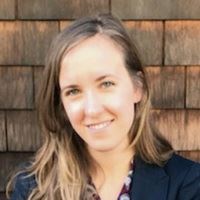 In her dissertation, Linda researches the theory of oblivion and asks, "What happened to oblivion?" "The story of oblivion begins around 422 b.c.e. when the Athenians and Bottiaians reconciled and swore, 'I shall not recall wrong for what is past.'" In contrast, in modern times we have been urged to "never forget." New cultures of memorialization and criminal accountability have emerged. Are these ideas in conflict? In this work, Linda "aims to excavate oblivion's hidden afterlives, tracing its lasting influence upon reparations and financial liquidation agreements, rehabilitation mechanisms, and the emergence of the right to privacy. . . . The right-to-be-forgotten," she maintains, "is a 21st century instantiation of oblivion."
In her dissertation, Linda researches the theory of oblivion and asks, "What happened to oblivion?" "The story of oblivion begins around 422 b.c.e. when the Athenians and Bottiaians reconciled and swore, 'I shall not recall wrong for what is past.'" In contrast, in modern times we have been urged to "never forget." New cultures of memorialization and criminal accountability have emerged. Are these ideas in conflict? In this work, Linda "aims to excavate oblivion's hidden afterlives, tracing its lasting influence upon reparations and financial liquidation agreements, rehabilitation mechanisms, and the emergence of the right to privacy. . . . The right-to-be-forgotten," she maintains, "is a 21st century instantiation of oblivion."
As one professor notes, she has "an uncanny gift: an instinct for looking at the overlooked and, in the process, for turning conceptual frameworks on their heads." She is "a gifted writer, a serious student, and a committed thinker."
Alan Kong, UC San Francisco Medicine M.D., (studying glaucoma), (Hendess Award). YouTube Video: https://youtu.be/G-eAFHUj7JQ
We received a thank you from Alan
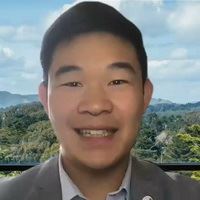 Alan is studying glaucoma. He is interested both in "identifying more objective ways to detect early glaucoma more objectively" and in "identify[ing] potential therapeutic agents that can be used to protect the neurons within the eye to prevent and cure glaucoma." Currently, the "gold standard" to evaluate for glaucoma is a visual field test, which is "extremely tedious and uncomfortable for patients." Alan is working with an electroretinogram (ERG) to see if it can provide an objective measurement of visual function just as a cardiologist may use an electrocardiogram to evaluate the heart. Early research is encouraging. The second arm is his research is involved in "understanding how certain proteins [thrombospondin in particular] may protect . . . retinal neurons from losing their synapses" and thus prevent major vision loss.
Alan is studying glaucoma. He is interested both in "identifying more objective ways to detect early glaucoma more objectively" and in "identify[ing] potential therapeutic agents that can be used to protect the neurons within the eye to prevent and cure glaucoma." Currently, the "gold standard" to evaluate for glaucoma is a visual field test, which is "extremely tedious and uncomfortable for patients." Alan is working with an electroretinogram (ERG) to see if it can provide an objective measurement of visual function just as a cardiologist may use an electrocardiogram to evaluate the heart. Early research is encouraging. The second arm is his research is involved in "understanding how certain proteins [thrombospondin in particular] may protect . . . retinal neurons from losing their synapses" and thus prevent major vision loss.
One of his professors noted that he is not only "an intellectual powerhouse" but also "a joy to work with."
Rebecca Nelson, UC Davis, Ecology. YouTube Video: https://youtu.be/bFL203W3VoU
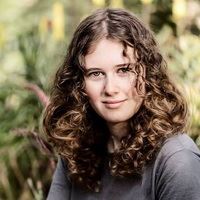 In "The Effects of Invasion on Grassland Plant-Pollinator Mutualisms," Rebecca studies "biodiverse serpentine grasslands and heavily invaded non-serpentine grasslands" to examine "how pollinators move between serpentine and non-serpentine grassland." Previous studies have examined how invasive species affect plants and pollinators within a single ecosystem. This research investigates "whether invasive plant species in one ecosystem can affect the pollination of native plant species in a neighboring ecosystem." The results of this research "will inform policies regarding which areas to prioritize for invasive species removal and will help identify which native serpentine plant species are most vulnerable to the effects of invasive plant species."
In "The Effects of Invasion on Grassland Plant-Pollinator Mutualisms," Rebecca studies "biodiverse serpentine grasslands and heavily invaded non-serpentine grasslands" to examine "how pollinators move between serpentine and non-serpentine grassland." Previous studies have examined how invasive species affect plants and pollinators within a single ecosystem. This research investigates "whether invasive plant species in one ecosystem can affect the pollination of native plant species in a neighboring ecosystem." The results of this research "will inform policies regarding which areas to prioritize for invasive species removal and will help identify which native serpentine plant species are most vulnerable to the effects of invasive plant species."
Professors call her "driven, extremely smart, and deeply passionate about ecology" as well as "very interested in outreach" and "effective in communicating with the public."
Ryan Page, UC Santa Cruz, Film & Digital Media. YouTube Video: https://youtu.be/HUV_ldK12c4
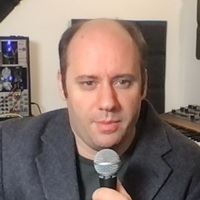
Ryan is doing research on "the aesthetics of simulation within digital audio and its relationship to twentieth-century experimental music and contemporary culture." The work examines the possibility that "the noises of media technologies may relate more information about the ideology behind a mediated system than their content." To this end, Page details "how fundamental computing practices, such as dither, are used to simulate analog media and obfuscate the aesthetics of digital media" and explores how "imperfections in the process of abstracting information aid the development of new forms of music." Although noise seems "natural" for recorded sound, "naturalizing our preferences as Western listeners glosses over a fundamental reality of digital audio: it is constructed, from the outset, to simulate the analog."
Professors call him "an original scholar and outstanding artist" and note his "high integrity, extraordinary intelligence, and immense creativity."
Elizabeth Postema, UC Davis, Animal Behavior. YouTube Video: https://youtu.be/bz9YE7BB3O8
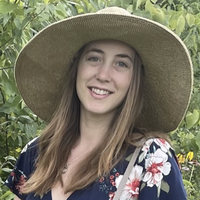 Elizabeth is seeking answers to questions about the complexity, diversity, and ecological roles of color in animals. "Researching color gives us basic insight into how organisms balance multiple selection pressures on traits, and how diversity in these traits is maintained in nature." To date, she has conducted two major field experiments on swallowtail caterpillars to answer some of these questions. In both, she used "hand-painted clay caterpillars to measure how multiple factors shape the effectiveness of defensive color patterns" and found that "as larvae age, they outgrow their ability to look convincingly like bird feces to predators" and must adopt different strategies. In future studies, she plans to "experimentally manipulate the color of live larvae and measure aspects of thermal performance, predation, and immune functioning in response" in an effort to understand how climate change "can have complex downstream effects on ecological traits and systems."
Elizabeth is seeking answers to questions about the complexity, diversity, and ecological roles of color in animals. "Researching color gives us basic insight into how organisms balance multiple selection pressures on traits, and how diversity in these traits is maintained in nature." To date, she has conducted two major field experiments on swallowtail caterpillars to answer some of these questions. In both, she used "hand-painted clay caterpillars to measure how multiple factors shape the effectiveness of defensive color patterns" and found that "as larvae age, they outgrow their ability to look convincingly like bird feces to predators" and must adopt different strategies. In future studies, she plans to "experimentally manipulate the color of live larvae and measure aspects of thermal performance, predation, and immune functioning in response" in an effort to understand how climate change "can have complex downstream effects on ecological traits and systems."
She is also an award-winning poet and has written "PhD Research or Arts and Crafts Hour . . . Why Not Both?" for The Ethnogram blog.
One of her professors notes her skill in teaching an art-science fusion course and calls her "fearless in learning new things and very skilled in integrating information."
Maria-Fátima Santos, UC Berkeley, Sociology (Gilliland Award)
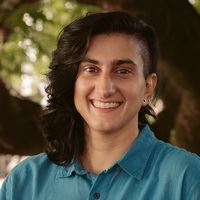 Maria-Fátima's dissertation, "Brazil's Public Defenders at Work: Representing the Poor in the Shadow of Hyperincarceration," examines "how public defenders' performance of their formal legal function is influenced by social, legal, and institutional context." The public defender, a new legal profession in Brazil, is a key feature of reforms currently sweeping across Latin America. "Brazil's return to electoral democracy in the 1980s was accompanied by an unprecedented incarceration boom. Today, the country incarcerates the third largest population globally." Public defenders are a "key cog in the criminal justice machinery," translating law into action. This dissertation provides "unprecedented empirical evidence on the everyday work of Brazil's public defenders and the broader ensemble of activities and relationships that comprise the criminal justice 'system.'"
Maria-Fátima's dissertation, "Brazil's Public Defenders at Work: Representing the Poor in the Shadow of Hyperincarceration," examines "how public defenders' performance of their formal legal function is influenced by social, legal, and institutional context." The public defender, a new legal profession in Brazil, is a key feature of reforms currently sweeping across Latin America. "Brazil's return to electoral democracy in the 1980s was accompanied by an unprecedented incarceration boom. Today, the country incarcerates the third largest population globally." Public defenders are a "key cog in the criminal justice machinery," translating law into action. This dissertation provides "unprecedented empirical evidence on the everyday work of Brazil's public defenders and the broader ensemble of activities and relationships that comprise the criminal justice 'system.'"
In support of her application, professors note her "impressive record of research, teaching, mentorship, and public service."
Hope Schwartz, UC San Francisco. Medicine M.D., (Reed Award). YouTube Video: https://youtu.be/tuOyHdQyENY
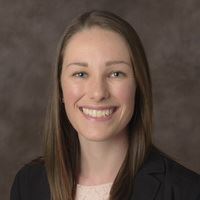 As a social scientist entering the medical field, Hope is seeking to "bridge the gap between scholarship and frontline systems change, applying academic rigor to designing, implementing, and evaluating interventions in the clinical space." After studying pain management for trauma patients with limited English proficiency and examining the impact of patient language in hospitalized trauma patients, she and her team "created a multidisciplinary group . . . to address these disparities by standardizing prescribing across the hospital." At the UCSF Acute Care Innovation Center, she "led the development and implementation of a novel, open-access, comprehensive clinical information hub" [computerized] that can be rapidly updated to incorporate real-time information. This was especially useful during the most recent COVID-19 pandemic.
As a social scientist entering the medical field, Hope is seeking to "bridge the gap between scholarship and frontline systems change, applying academic rigor to designing, implementing, and evaluating interventions in the clinical space." After studying pain management for trauma patients with limited English proficiency and examining the impact of patient language in hospitalized trauma patients, she and her team "created a multidisciplinary group . . . to address these disparities by standardizing prescribing across the hospital." At the UCSF Acute Care Innovation Center, she "led the development and implementation of a novel, open-access, comprehensive clinical information hub" [computerized] that can be rapidly updated to incorporate real-time information. This was especially useful during the most recent COVID-19 pandemic.
She also captained the Harvard University Women's Rugby team and "advocated for collegiate women's rugby expansion in the Harvard Athletic Department and the NCAA."
Her professors write that she "embodies service through academic scholarship" and is "an extremely productive and innovative student-leader."
Vannessa Velez, Stanford University, History, (Norall Award). YouTube Video: https://youtu.be/IbPXuk7mO_8
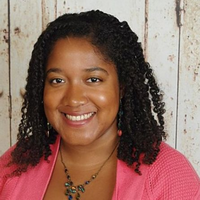 In her dissertation, Vannessa examines "racial capitalism." The dissertation focuses on the city of Atlanta, "a leader in a new class of up-and-coming global cities." She argues that "not only are Atlanta's successes and struggles representative of how cities adapted to globalization, but the city became a direct model for municipal governments in the U.S. and around the world after successfully hosting the 1996 Centennial Olympic Games." Furthermore, the dissertation challenges the common belief that "more diverse leadership will bring an end to inequality. Atlanta is a majority black city and has enjoyed black municipal leadership since the end of Jim Crow. Despite these accomplishments, Atlanta remains one of the most racially, environmentally, and economically unequal cities in the nation. The city used eminent domain to "confiscate private property . . . for 'public use'" that often "barred entry for African Americans and other people of color." The city's continued struggles reveal that simply achieving greater representation in government cannot solve systemic inequalities."
In her dissertation, Vannessa examines "racial capitalism." The dissertation focuses on the city of Atlanta, "a leader in a new class of up-and-coming global cities." She argues that "not only are Atlanta's successes and struggles representative of how cities adapted to globalization, but the city became a direct model for municipal governments in the U.S. and around the world after successfully hosting the 1996 Centennial Olympic Games." Furthermore, the dissertation challenges the common belief that "more diverse leadership will bring an end to inequality. Atlanta is a majority black city and has enjoyed black municipal leadership since the end of Jim Crow. Despite these accomplishments, Atlanta remains one of the most racially, environmentally, and economically unequal cities in the nation. The city used eminent domain to "confiscate private property . . . for 'public use'" that often "barred entry for African Americans and other people of color." The city's continued struggles reveal that simply achieving greater representation in government cannot solve systemic inequalities."
Professors noted her "intuitive sense of the craft of historical study" and called her "whip smart [and] intellectually generous."
Sarah Wilker, Stanford University, Classics (Archaeology). YouTube Video: https://youtu.be/rBfSgubo0a0
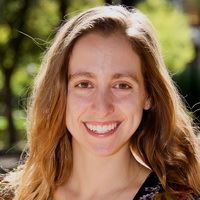 Sarah is studying Mediterranean markets from the late Classical to the early Hellenistic era in the southeast Aegean. In her research she is using material evidence--especially wine vessels--not just historical records. She is looking for the social connections that played out in market mechanisms. What sort of "glue" held social connections together? The dissertation argues that "formal interaction modeling provides a glimpse into this behavior and . . . traces the origins of formal network approaches in archaeological research." Sarah has "strong interests in digital humanities" because she believes that "they can increase student engagement with the past and make the ancient world accessible across educational contexts" and show the importance of liberal arts and sciences.
Sarah is studying Mediterranean markets from the late Classical to the early Hellenistic era in the southeast Aegean. In her research she is using material evidence--especially wine vessels--not just historical records. She is looking for the social connections that played out in market mechanisms. What sort of "glue" held social connections together? The dissertation argues that "formal interaction modeling provides a glimpse into this behavior and . . . traces the origins of formal network approaches in archaeological research." Sarah has "strong interests in digital humanities" because she believes that "they can increase student engagement with the past and make the ancient world accessible across educational contexts" and show the importance of liberal arts and sciences.
As one professor noted, "Our libraries are packed with books filled with basic data. Studies that build on this information," as Sarah's study does, "are much less common." Her project reveals the people behind the historical and political moment.
Madeline Wyse, UC Berkeley, Middle Eastern Languages & Cultures. YouTube Video: https://youtu.be/2DZ1RdYXfgI
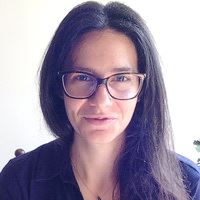 In "Reverent Irreverence: Retelling the Tales of the Bible and Qur'an," Madeline "brings together Rabbinic and Islamic interpretations and rewritings of Biblical and Quranic stories, not for the sake of determining origins and lines of transmission, but to characterize spaces of complex bilateral circulation." She seeks to trace "the continuous thread of comic critique in early Islamic and Islamic-era Rabbinic interpretive literatures." Also, "One of the hallmark characteristics of Rabbinic and Islamic exegetical works is that every verse of scripture will be followed by a large number of different, sometimes conflicting, interpretations. . . . Building an appreciation and appetite for ambiguity and complexity are . . . at the core of my work." Students, she notes, are often by turns "shocked, challenged and delighted by the persistent diversity and debate within what they are used to thinking of as fixed religions, as well as the blurriness of the lines between supposedly distinct religions."
In "Reverent Irreverence: Retelling the Tales of the Bible and Qur'an," Madeline "brings together Rabbinic and Islamic interpretations and rewritings of Biblical and Quranic stories, not for the sake of determining origins and lines of transmission, but to characterize spaces of complex bilateral circulation." She seeks to trace "the continuous thread of comic critique in early Islamic and Islamic-era Rabbinic interpretive literatures." Also, "One of the hallmark characteristics of Rabbinic and Islamic exegetical works is that every verse of scripture will be followed by a large number of different, sometimes conflicting, interpretations. . . . Building an appreciation and appetite for ambiguity and complexity are . . . at the core of my work." Students, she notes, are often by turns "shocked, challenged and delighted by the persistent diversity and debate within what they are used to thinking of as fixed religions, as well as the blurriness of the lines between supposedly distinct religions."
A member of her committee calls her "philologically meticulous, philosophically keen, and historically sensitive."
The Scholarship Committee: Jeff Fenton, Lynne Fovinci, Judith Hardardt, Jean James, Joanne Sandstrom (Chair)